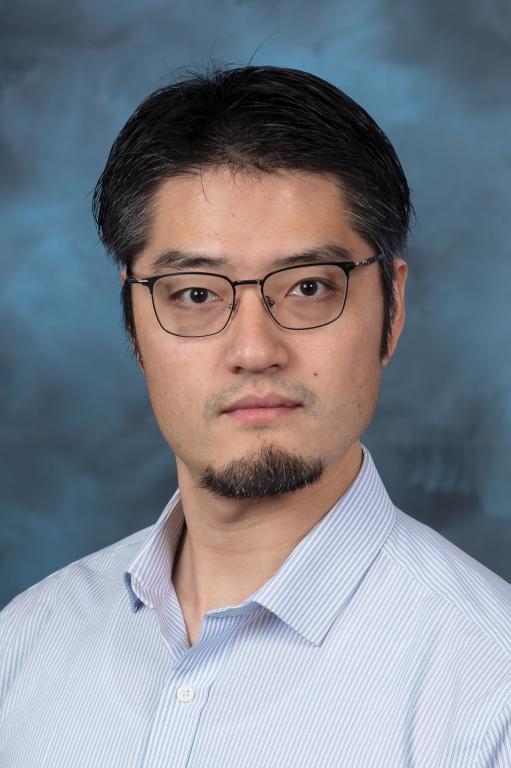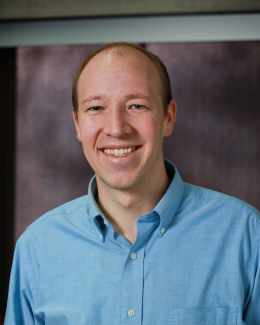Guang Yang and Andrew Westover, scientists at the Department of Energy’s Oak Ridge National Laboratory, have been selected to join the first cohort of DOE’s Advanced Research Projects Agency-Energy, or ARPA-E, Inspiring Generations of New Innovators to Impact Technologies in Energy 2024, or IGNIITE 2024, program. IGNITE supports early career scientists and engineers in their work to convert innovative ideas into impactful energy technologies.
“We need an infusion of unconventional ideas from the next generation of researchers, entrepreneurs and technologists to tackle energy challenges of today,” said ARPA-E Director Evelyn Wang. “As an engineer who benefited from support early on in my career, I know how instrumental resourcing and expert guidance is to successful innovation. By supporting this cohort of early-career innovators, I am confident that we are one step closer to a sustainable clean energy future.”

Both Westover and Yang work in the Energy Storage and Conversion group of ORNL’s Chemical Sciences Division. They are among 23 researchers in industry, academia and government sharing $11.5 million through IGNIITE 2024. Because early-career researchers often generate groundbreaking ideas, IGNIITE 2024 aims to help them gain independent success through research support, events, meetings and mentorship of senior principal investigators. Awardees attend a two-week summer session in Washington, D.C., where they receive training on proposal writing, project management, public speaking, technology transfer and interacting with federal funding agencies and private investors.
Westover was awarded a total of $500,000 over two years for his project, Ductile Bulk Ionic Glasses for Electric Vehicle Batteries, or BIGBATT. At ORNL, Westover leads projects on lithium metal for solid-state batteries, the mechanics of solid-state batteries and ionic glass electrolytes. His IGNIITE project will develop bulk ionic glasses using traditional glass processing that captures the desirable ductility of LiPON glass, a solid electrolyte invented at ORNL nearly 30 years ago. He aims to show that these bulk ionic glasses can enable batteries that have twice the energy density of commercial lithium-ion batteries and can charge in 10 minutes.
Westover earned his doctorate in materials science and engineering from Vanderbilt University. He then worked at ORNL as a postdoctoral research associate before becoming a staff member.
“My research goal is to help decarbonize transportation by developing solid-state batteries that double the energy and charging rate of current state-of-the-art lithium-ion batteries,” Westover said.
Yang was awarded a total of $500,000 over two years for his project, Supercritical Carbon Dioxide-Leveraged Redox Flow Batteries, or SUPERCOOL-RFB. He is working to create a new battery that uses low-cost materials such as sodium and carbon dioxide. The battery could be 40 times more powerful and 90% cheaper than current redox flow batteries.

Yang earned his doctorate in chemical engineering from Florida State University. At ORNL, he leads projects focused on next-generation batteries and sustainable energy-conversion technologies, such as advanced redox flow batteries, high-energy solid-state batteries and electrochemical carbon dioxide conversion. His work addresses critical knowledge gaps in energy storage technology, aiming to improve energy density, efficiency and sustainability by using low-cost, noncritical materials. Yang wants to develop a state-of-the-art redox flow battery that harnesses carbon dioxide as a renewable fuel, turning environmental problems into energy solutions. Redox flow batteries differ from traditional lithium-ion batteries in their ability to scale energy capacity independently of power capacity, making them ideal for large-scale energy storage applications.
"Imagine a world where our battle against climate change is powered by the very agent of its cause — carbon dioxide — turning a harmful greenhouse gas into a source of clean, sustainable energy,” Yang said.
IGNIITE 2024 supports the Biden-Harris Administration’s Investing in America plan by boosting research and development that underpins U.S. leadership in energy innovation and global decarbonization. The awards support research across a spectrum of energy applications, including advanced energy storage, fusion reactor technology, carbon-negative concrete, power electronics for grid reliability, critical material recovery, energy-efficient water desalination and plastic recycling.
“ARPA-E’s program seeks to speed urgently needed solutions,” said Cynthia Jenks, ORNL’s associate laboratory director for physical sciences. “We’re proud of Guang and Andrew in receiving support for their innovative projects, which can help the United States lead in solving major energy challenges.”
Yang and Westover will be honored with the other awardees July 9 at a reception at the National Academy of Sciences in Washington, D.C.
UT-Battelle manages ORNL for DOE’s Office of Science. The single largest supporter of basic research in the physical sciences in the United States, the Office of Science is working to address some of the most pressing challenges of our time. For more information, please visit energy.gov/science. — Dawn Levy



